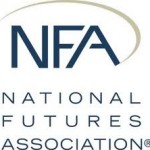
Last week we wrote about the NFA’s adoption of all 21 recommendations from the Berkeley Research Group (BRG), an independent audit that was performed to review the agency’s work in response to the PFG Best fraud. (Coincidentally, the NFA’s Board Meeting to discuss the BRG review and subsequent announcement occurred on the same day that PFG Best CEO Russell Wasendorf Sr was sentenced to 50 years in prison, and ordered to pay $215.5 million in restitution for the defrauding clients.) In our review, we were critical of the NFA and felt that the agency was lax in taking responsibility in its role of the PFG fraud.
Responding to Forex Magnates, Karen Wuertz SVP, Strategy and Communications at the NFA disagreed with our premise that the NFA had highlighted the positives of the BRG report while overlooking the critical points. She explained that the NFA wasn’t taking the BRG’s findings lightly, as seen by the agency’s implementation of the recommendations and stated “I agree that the BRG report was critical of some areas of our audit programs and procedures. However, rather than omitting them from the press release or ignoring them, as you mentioned, we clearly stated in all of our communications that all 21 recommendations will be implemented.” Wuertz also added that the BRG’s criticism was summarized in the body of the NFA’s statement, which touched on areas Forex Magnates stated that the agency overlooked.
Below are the areas of concern of the BRG review that we highlighted in our report that needed to be addressed, with the NFA’s response in bold. (PR=Press Release)
1)“We did find that some NFA auditors did not always exhibit sufficient professional skepticism in assessing and evaluating fraud risks.”
PR-Chairman of the SC states that in certain areas that NFA could have been more inquisitive. PR also states that BRG report recommended that NFA enhance its training and procedures to ensure a greater sense of professional skepticism.
2)“We also found that some of the members of the NFA audit teams were relatively inexperienced and unfamiliar with the futures industry”
PR-BRG recommendations are designed to improve the operations of NFA audits . . including auditor hiring, training, supervision and continuing education
3)“We found that, while training at NFA was readily available and effective, particularly for the inexperienced auditors, there was not always consistency in training sessions after important events in the industry, such as the Bernard Madoff Ponzi Scheme , or the MF Global collapse, where there wereopportunities for significant lessons to be learned for NFA auditors.” See above
4)“We also found that the NFA audits of PFG did not focus adequately on internal controls of PFG. For instance, some NFA auditors were not aware that Wasendorf was the only individual within PFG who had access to the original U.S. Bank statements (which provided him the ability to falsify the statements provided to PFG’s staff and NFA),”
PR- report recommends that NFA conduct more testing of Members’ internal controls
5)"We further found that the NFA auditors had little interaction with PFG’s outside auditor, did not review the outside auditor’s workpapers, and some NFA auditors were not aware until the 2012 annual audit that PFG’s outside auditor was, in the later years, a one-person auditing firm in suburban Chicago.”
PR-BRG recommends that NFA conduct more testing of qualifications of outside auditors
6)“We also found that NFA auditors did not fully examine the fact that PFG was losing significant money in many years, Wasendorf’s frequent and significant capital contributions, or the source of his capitalcontributions. “
PR-BRG recommends that NFA conduct more testing of the sources of firm capital contributions
7)“We found that NFA auditors did not express significant concerns about PFG’s reverse repurchase Agreements”
PR- NFA could have been more inquisitive, enhance training and procedures to ensure a greater sense of skepticism among its audit staff,, take steps to better identify potential risk factors in FCM operations.












